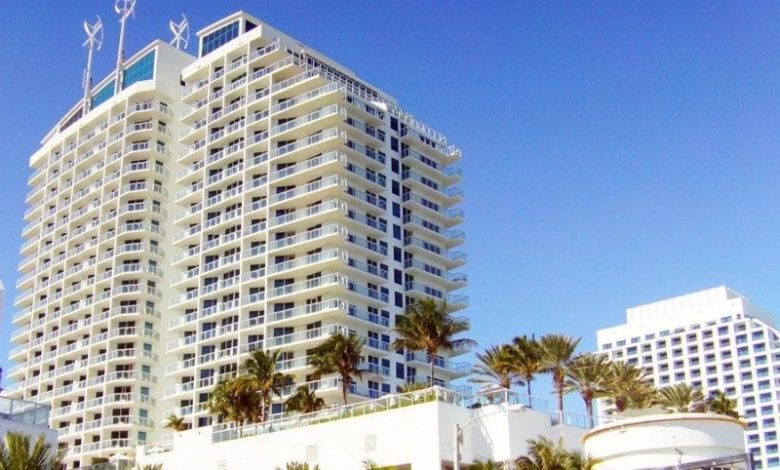Comment: World Tourism Day – taking the long term view

With resorts and hotels all over the world going green, there is a mass desire to protect local environments, while also boosting economic growth. The tourism industry impacts nearly every location on the planet — and its relationship with the environment has always been complex. World Tourism Day, observed annually on September 27, offers an opportunity to examine tourism’s value with a long term view. New research shows that renewable energy and other sustainable tourism practices can positively impact both the environment and the bottom line.
Balancing act
Anyone working in the hotel industry knows that natural beauty is a draw for guests, with many checking out of their stay more interested in protecting surrounding natural resources. Yet ironically, tourism activities and facilities can also contribute to environmental degradation with the potential to eradicate these long-term economic benefits. Sustainable tourism (or “eco-tourism”) is a way to balance these priorities and keep the tourism industry healthy for years to come.
Sustainable tourism is no longer a niche movement — it is where the future is heading, and many hotels are leading the way. Implementing sustainable practices can preserve resources and slash energy bills. On top of this, tourists themselves are increasingly eco-minded, and are now actually seeking out accommodations and activities because of their sustainable practices. For example, the U.S. Green Building Council found that LEED certified hotels not only reduce energy costs for the hotel owners, but attract more revenue from guests. The International Renewable Energy Agency similarly found that renewable energy technology has a positive impact on resort occupancy rates.
Hospitality sector leading with renewable energy
The implementation of renewable energy in prime tourist locations (like hotels) serves as a way for guests to feel more connected with their local environment. Watching a wind turbine or a solar panel generate electricity in real time is a personal and rewarding experience – companies taking corporate responsibility to preserve the environment is becoming increasingly important to the average traveller. Renewable energy increases awareness, and has the potential to foster environmentally conscious behaviour among both residents and tourists.
A few hotels leading the way on sustainable tourism:
- Hotel Stadthalle in Vienna is the first urban hotel in the world to have a zero energy balance. Located in a city environment where nature is sparse, the hotel seized the opportunity to positively impact those in the area. The hotel installed a variety of renewable energy systems, and these sustainability measures attracted tourists. The Stadhalle has a lush rosebush rooftop garden, with trees shading the outdoor breakfast area. The walls of the building are adorned in beautiful vines, fauna, and wait for it– solar panels. Not only does the hotel promote green practices on company property, it also advocates for sustainable travel, offering discounts to guests who arrive by either bicycle or trains. These practices benefit the local community and tourists, boosting jobs, and demonstrating that cities are also a viable option for clean energy.
- The Hilton Fort Lauderdale Beach Resort on the shoreline of Florida facing the Atlantic Ocean holds property sustainability tours, which are conducted weekly for guests, local residents and schools. The tour includes a look at all the resort’s sustainable initiatives, including six 4K vertical axis wind turbines cutting 70,000 lbs of carbon annually. The hotel also has an environ pure composter which can compost up to 900 pounds of food waste each day. There is tinted glass in every room to protect the interior of the building from sun exposure, helping to reduce the amount of energy needed for heating and cooling. Education and engagement coupled with green initiatives trigger a dialogue about conservation, allowing guests, employees, and surrounding communities to be involved in a resort’s sustainability efforts.
- For Anvaya Cove Beach Resort near Manila in the Philippines, integrating wind and solar technologies kept the area pollution-free, while also mitigating the resort’s electricity expenses. The solar panels generate the majority of renewable energy, while the power generated by the turbines add an extra layer of security to ensure that Anvaya Cove Beach Resort never runs out of electricity – the company wears their energy resources like a green badge of honour.
Sustainable tourism must be understood as a prerequisite to successfully compete now and in the future. These case studies are small examples of what is becoming the new standard in the hotel industry. Making your operations sustainable and engaging the local community in green efforts are crucial to achieving economic and environmental success – and although World Tourism Day only comes once a year, achieving the long term view is something we should consider every day.
Ryan Gilchrist leads UGE’s Enterprise Division, delivering clean energy solutions for commercial clients. UGE is a leading developer of distributed renewable energy solutions for business and government, with projects in over 90 countries, including several for Fortune 1,000 companies. Find out more at www.urbangreenenergy.com









